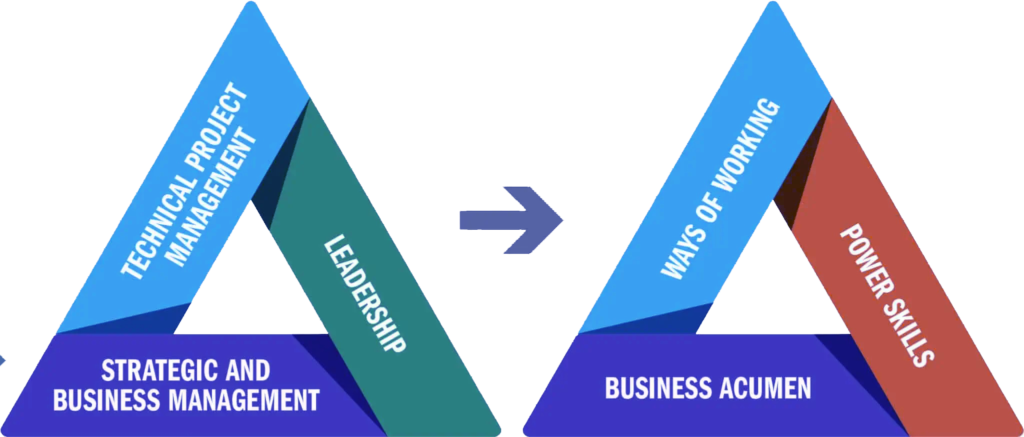Introduction
The great thing about PMI is their commitment toward continuous improvement and empowering project manager, with most effective skills and capabilities to complete their works in efficient and effective ways.
One of the PMI core concepts is the talent triangle, which summarise the abilities, skills, knowledge and experience required for project managers. The triangle stems from Project Manager Competency Development (PMCD) framework, that defines, evaluate and develop of project manager competence, refer to that skills have affecting PM performance.
The former talent triangle was focusing in three main skills: Technical project management, Strategic and business management and leadership. However, the updated talent triangle includes: Ways of Working (formerly Technical Project Management), Power Skills (formerly Leadership) and Business Acumen (formerly Strategic and Business Management).
In the essay I will delve into PMI talent triangle, explain the new update and try to expect what will be the change to the PMP exam and the earned PDU.

The PMI Talent Triangle® and organisations culture:
PMI research reveals that technical competences only may not be sufficient for the successful endeavours or to provides the intended outcome, I can say that, unless the project manager understands and digest the organisation culture his technical skill will not be enough to achieve his goal. The corporate culture is the value, belief and behaviours practiced in organisation which formed over time by rules, rituals and behaviours.
Based on that, to be effective project manger you must balance the following:
A- Power Skills
In the former talent triangle, it was known as Leadership, and it entails, dealing with people and studying their motivation, the qualities of a leader and his political knowledge and his power.
Now The PMI Talent Triangle® has added many other aspects to leadership such as Coaching and Mentoring as a vital skill because during the project you should create fellow leaders who can take decision. also, Conflict Management, Emotional Intelligence and Negotiation and these skills are important for a project to succeed.
B- Business Acumen
It is the substitution of Strategic and business management skills. The business acumen is about strategic alignment and innovation. The project manger must have a wide Market Awareness for better judgements, must understand Business Models and Structures to understand organisation strategic goal and explain its vision to his team, be aware of the Competitive Analysis within his organisation for resources and outside atmosphere and last but not least, the Industry Domain Knowledge for supply chain and Legal and Regulatory Compliance to avoid risks in schedule and costs.
C- Ways of Working
the new project management approaches such as Agile, Hyper Agile and Hybrid have become a reality in project management years ago, and it will dominate the project management field in the future (at least in tools and researches), that is the main reason why Technical Project Management have become Ways of Working. Beside that, it includes, Earned Value Management because the project initiated to create a unique deliverable and one of the methods to track the project progress is the EVM.
Above that, ways of working have a governance side, by governance I mean the management framework which determines the decision-making methods and assign the responsibilities and accountabilities within the organisation. The governance in the project should be aligned with the project governance to avoid conflicts specially in matrics organisation.
In addition, Risk Management, Schedule Management, Scope Management. Time, Budget and Cost Estimation are parts of the technical competencies of the project manager, but they are already there in the previous talent triangle along with other knowledge areas.
Take away
I believe this update in talent triangle really reflects the trending project management competences,
and if you think about a leadership career you must acquire them. In my opinion, these core
competences would be included in the next PMP exam content, as it fits the PMBOK 7 will. Finally,
you should know that the Professional Development Units (PDUs) will be distributed with the
updated category Ways of Working (instead of Technical Project Management), Power Skills (instead
of Leadershi
The PMI Talent Triangle® updates